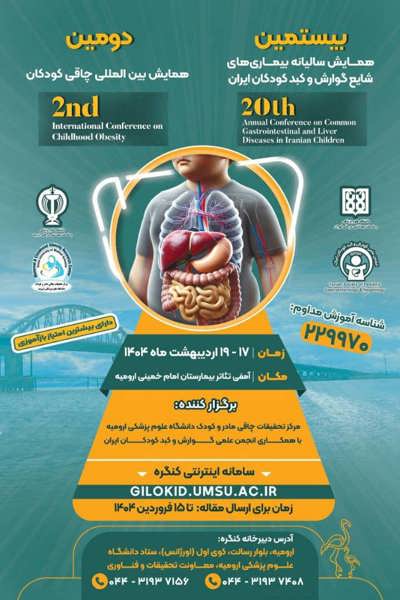0% Complete

صفحه اصلی
/
بیستمین همایش سالیانه بیماری های شایع گوارش و کبد کودکان ایران و دومین همایش بین المللی چاقی کودکان
نویسندگان :
کلمات کلیدی :
چکیده :
لیست مقالات بایگانی شده
Fateme Mohammadi - Ghazaleh Orouji - Kowsar Soltani - Khadijh Mohammadi - Zahra Mohammadi
Ladan Soltanzadeh - Ali Mirzaee AghGonbad - Shanli Mirzaee
Ladan Soltanzadeh - Ali Mirzaee AghGonbad - Shanli Mirzaee
Nastaran Vakilbashi - Golnaz Khodayari - Faezeh Ghalichi
Yousef Tavakolifar - Aydin Mahmoud Alilou - Parinaz Mahmoud Alilou - Amir Hossein Eskandari - Amir Reza Bana Nasli - Asal Khaksar Kolvanagh - Alisan Khodayarlo - Sina Manouchehrnia - Pouria Shieeh - Sana Nasirpour - Meysam Najafi - Reza Rostami - Pardis Pour Ali
Razieh Vaezi - Laleh Payahoo - Mohaddeseh Ghahremani - Yaser Khajebishak
Ladan Soltanzadeh - Ali Mirzaee AghGonbad - Sulmaz Soltanzadeh
Ali Faraghi Dastjerd - Bahareh Sasanfar - Zahra Nafei - Nasrin Behniafard - Amin Salehi-Abargouei

